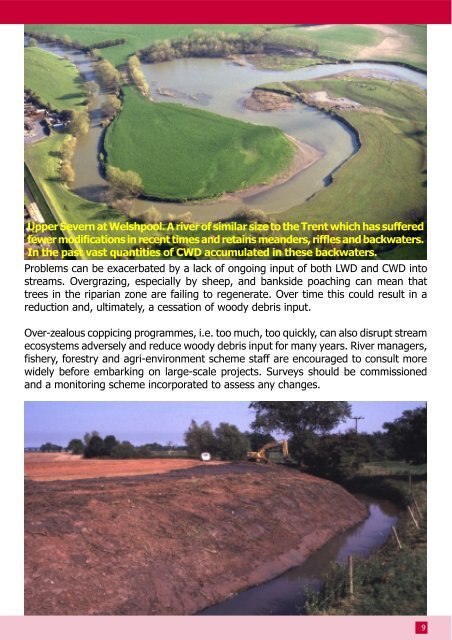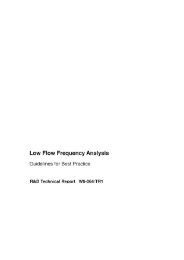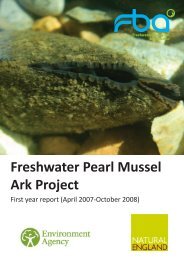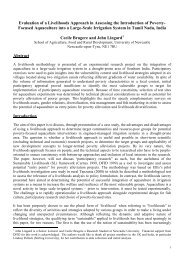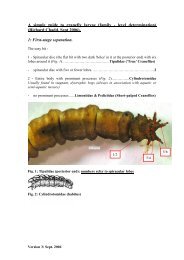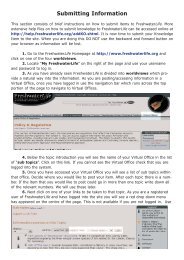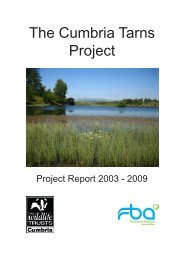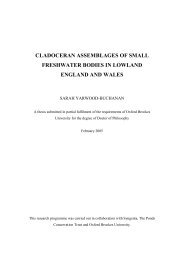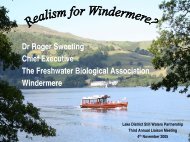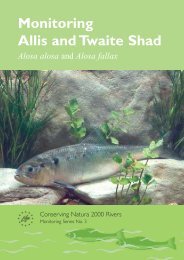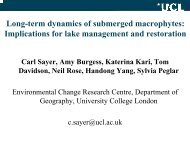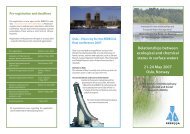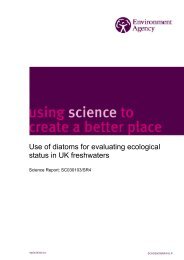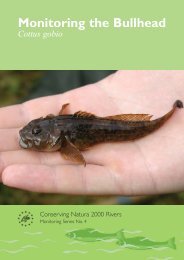Managing Woody Debris - FreshwaterLife
Managing Woody Debris - FreshwaterLife
Managing Woody Debris - FreshwaterLife
You also want an ePaper? Increase the reach of your titles
YUMPU automatically turns print PDFs into web optimized ePapers that Google loves.
Upper Severn at Welshpool. A river of similar size to the Trent which has suffered<br />
fewer modifications in recent times and retains meanders, riffles and backwaters.<br />
In the past vast quantities of CWD accumulated in these backwaters.<br />
Problems can be exacerbated by a lack of ongoing input of both LWD and CWD into<br />
streams. Overgrazing, especially by sheep, and bankside poaching can mean that<br />
trees in the riparian zone are failing to regenerate. Over time this could result in a<br />
reduction and, ultimately, a cessation of woody debris input.<br />
Over-zealous coppicing programmes, i.e. too much, too quickly, can also disrupt stream<br />
ecosystems adversely and reduce woody debris input for many years. River managers,<br />
fishery, forestry and agri-environment scheme staff are encouraged to consult more<br />
widely before embarking on large-scale projects. Surveys should be commissioned<br />
and a monitoring scheme incorporated to assess any changes.<br />
19


